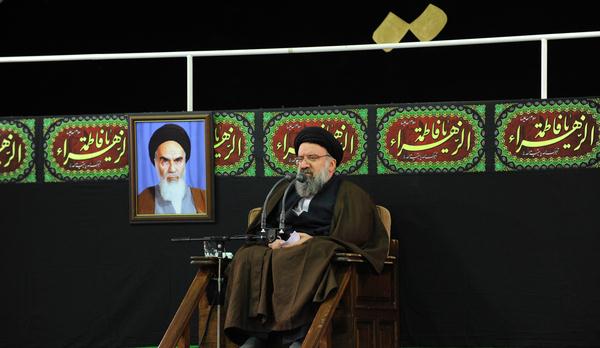
RNA – “Those who are involved in politics are expected to express their opinions but there is no place to colour these opinions with [incorrect] religious and sectarian opinions,” Ayatollah Sayyed Ahmad Khatami, a member of the Assembly of Experts, said referring to the claim that some individuals have brought forward that Imam Husayn negotiated with and paid allegiance to ‘Umar ibn Sa’ad, the commander of the Umayyad army in the Battle of Karbala.
His Eminence added: “First we ask: in which historical document is it mentioned that Imam Husayn paid allegiance to ‘Umar ibn Sa’ad? Secondly: paying allegiance is sometimes part of Islamic ethics and sometimes it is symbolic.”
The member of the Society of Seminary Teachers of Qom said that paying allegiance to the enemy can be symbolic and is part of Islamic ethics. The ‘Master of the Martyrs’ [Imam Husayn] did not reply to the letter sent by ‘Ubaydullah ibn Ziyad.
“Therefore, to say that Imam Husayn paid allegiance or even negotiated with ‘Umar ibn Sa’ad is incorrect,” he said.
Ayatollah Khatami said that on the night of Ashura, Imam Husayn preached to and offered advice to ‘Umar ibn Sa’ad but did not negotiate with him in the sense of the politics of give and take that is common in the present era.
Tehran’s temporary Friday prayer leader referred to the handshake between Dr. Mohammad-Javad Zarif, Iran’s Foreign Minister, and US President Barack Obama demanding that "the Iranian Foreign Minister’s handshake with the enemy, even if it is wrong, not be used as a political weapon.
Ayatollah Khatami added that due to the prudence and wisdom of the Supreme Leader of the Islamic Revolution (Ayatollah Sayyed Ali Khamenei), "the concerns over the Joint Comprehensive Plan of Action (JCPOA) have been finalized and we must all join hands to help lead our country towards unity and solidarity."
111/112